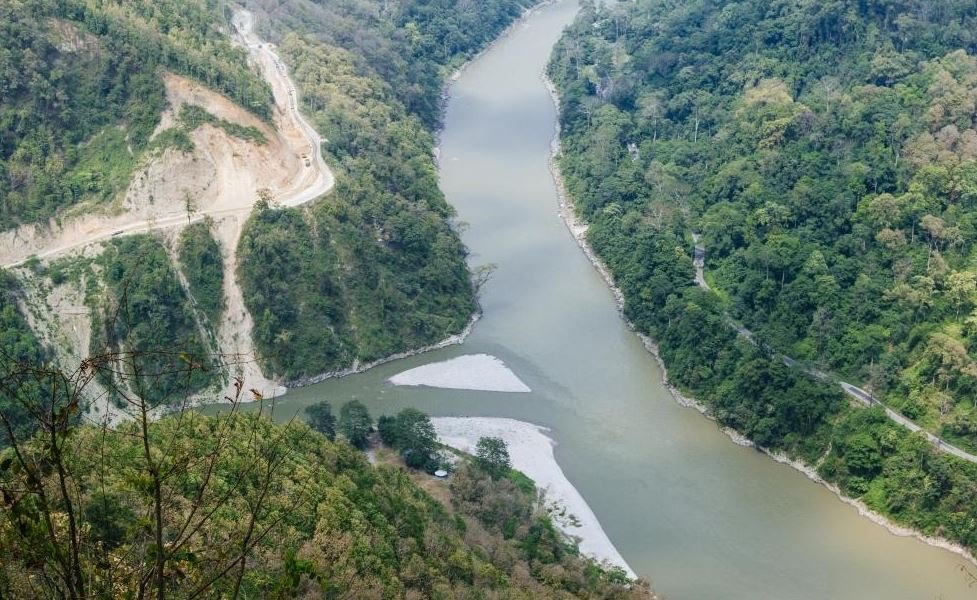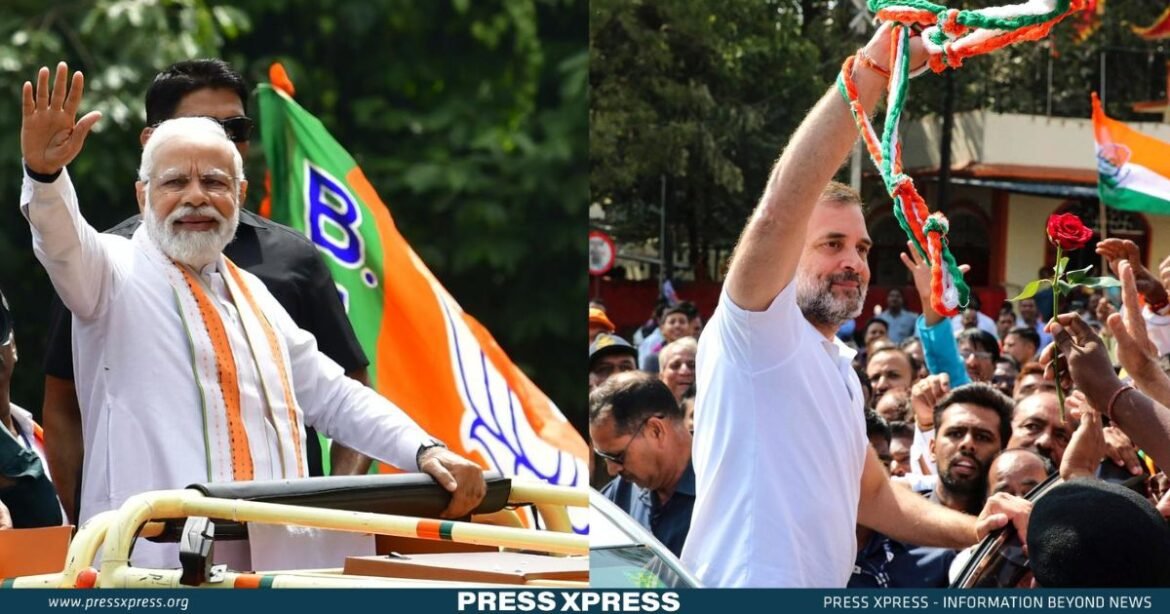As both countries closely monitor electoral outcomes, the stakes remain high for diplomatic, political, and socio-economic ties between Bangladesh and India
Indian Lok Sabha elections, scheduled to start on April 19, 2024, have received mammoth attention in the region, and its neighboring countries like Bangladesh also got deep attention to it.
As we all know, meanwhile, Indian Chief Election Commissioner Rajiv Kumar announced that Lok Sabha elections for 543 seats will be held in seven phases, from April 19 till June 1. The counting of votes will be held on June 4. He further announced that assembly elections in Andhra Pradesh and Odisha will be held on May 13, while Arunachal Pradesh and Sikkim will vote on April 19. A total of 96.8 crore voters will be eligible to cast their vote in the 2024 Lok Sabha elections.
Despite pre-election polls indicating a stable political landscape, India’s decisions over the Citizenship Amendment Act (CAA) are possibly poised to ripple the South Asian region’s diplomatic and socio-political fabric.
The implications of this legislation, coupled with the looming prospect of the National Register of Citizens (NRC), have cast a spotlight on minority rights and the delicate balance of religious dynamics in the subcontinent.
Bangladesh and India have been enjoying constantly a strong friendly relationship for the last 15 years due to both country’s present governments’ positive policies. This is why, in the wake of the Indian election, Bangladesh finds itself intricately entwined in India’s electoral discourse, with a myriad of issues ranging from diplomatic relations to border security and trade agreements.
Why Bangladesh Will Keep An Eye On India’s Elections?
In this intricate tapestry of regional dynamics, the eyes of Bangladesh are keenly positioned on India’s election events that may reshape the contours of their shared future.
Whether or not there is a change in India’s power structure, at least five reasons can be identified for which the people of Bangladesh will be keeping a close eye on the upcoming elections in India. They are as follows:
Citizenship Act
Since the recent enactment of the Citizenship Amendment Act (CAA) in India, extensive discussions have ensued across the nation, notably in regions like West Bengal and Assam.
According to the provisions of the Act, individuals belonging to religious minorities such as Hindus, Christians, Buddhists, Sikhs, Jains, and Parsis, who migrated to India from Bangladesh, Pakistan, and Afghanistan due to communal persecution, will be eligible for Indian citizenship, provided they arrived before December 31, 2014.
Consequently, this implies to Bangladesh if the Indian Citizen law takes effect.
“There is also a plan to implement the NRC after the implementation of the CAA. And there are fears that many Muslims in Assam and West Bengal will lose their citizenship if NRC happens. Which will have an impact on the Bangladesh border.”
– Shahadat Hossain, Researcher at the South Asian University, New Delhi

Consequently, analysts believe that Bangladesh’s citizens migration issue is much more involved in the current national elections of India than in any previous elections.
Political and Diplomatic Reason
The potential shifts in Indian government and policy following the elections could impact Bangladesh significantly. Hence, the major political parties in Bangladesh closely monitor the electoral proceedings in India.
According to analysts, the outcome of elections in both countries holds paramount importance. Specifically, for India’s BJP or Congress, the presence of the Awami League in power in Bangladesh is viewed as advantageous.
Former Foreign Secretary of Bangladesh, Tauhid Hossain, noted that when the Awami League assumed power in 2009, the Congress was leading in India. Traditionally, the Awami League has enjoyed strong ties with the Congress. However, after the BJP came to power in India in 2014, the Awami League also received substantial support from the Indian government.
Despite initial speculations, the transition to a BJP-led government under Narendra Modi did not significantly alter bilateral relations between Bangladesh and India over the past decade. Instead, the two countries have witnessed a significant strengthening of their ties.
In this year, following the fourth consecutive victory of the Awami League under the leadership of Sheikh Hasina, Indian Prime Minister Narendra Modi affirmed that as a close friend and trusted development partner of Bangladesh, India will continue to support Bangladesh’s aspirations and growth.
Teesta Treaty and Uniform River Water Sharing
The issue of river water sharing between Bangladesh and India, particularly concerning the Ganges and Teesta rivers, has persisted despite the strong overall relationship between the two countries. While a Ganges water-sharing agreement was reached in 1996, discussions on sharing eight rivers, including the Teesta, have not led to a resolution.
During the tenure of India’s former Prime Minister Manmohan Singh in 2011, preparations were made to sign the Teesta Treaty, but it faced opposition from the West Bengal government and could not be implemented.

The Ganges Treaty, signed in 1996, will expire in 2026, and discussions on agreements for six other rivers have not been finalized. Following Bangladesh’s 2024 elections, the new foreign minister, Hasan Mahmood, visited India and discussed renewing the Teesta and Ganges agreements after the Indian elections.
However, the Diplomatic analysts of Bangladesh do not think that the new central government of India will make a water-sharing agreement with Bangladesh, including Teesta, ignoring the opinion of that state government.
For that, Bangladesh will keep an eye on India’s election to see what will happen.
Killings At The Border
Geographically, Bangladesh is surrounded on three sides by neighboring India. There is a land border of more than 4000 kilometers between the two countries.
As per the findings of the Bangladeshi human rights organization ‘Ain O Salish Kendra’, 30 Bangladeshi citizens fell victim to the Indian border guard force BSF in 2023 alone. In the preceding year, 2022, the count of border fatalities stood at 23, with 16 casualties attributed to BSF gunfire. In 2021, the toll was 17, alongside recurrent reports of Bangladeshi citizens being abducted at the border.
A bilateral agreement was signed between the two countries in April 2018 aimed at stopping the loss of lives along the border. The two countries also agreed not to use lethal weapons in border-crossing incidents.

Bangladesh Foreign Minister Hasan Mahmud held a press conference in Dhaka on February 12, 2024, after his visit to India. There he said, “Bangladesh and India have agreed on the use of non-lethal weapons to reduce border killings. However, even before this, there was an agreement to bring down the loss of life on the border to zero, but it was stuck on paper, analysts said.
With Bangladesh observing India’s upcoming elections, there is anticipation regarding potential changes in the border situation afterward.
Transit And Port Usage
Since the Awami League came to power, various agreements have been signed between the two countries, including the exchange of enclaves, land border agreement, road transit, and permission to use Chittagong and Mongla sea ports.
There have been many arguments and debates in Bangladesh for a long time regarding the provision of transit and transshipment facilities to India. In 2010, the then government formed a committee comprising experts and bureaucrats to review the matter. The committee’s report reviewed various aspects including infrastructural constraints and recommended providing transshipment facilities to India. At that time there was also a debate about the transit-transshipment fee or fee. Some of Bangladesh’s policy-makers have come under fire for taking a stance in favor of no levy.
Bangladesh has recently allowed India to use Chittagong and Mongla ports. Even though India has been given that opportunity, Bangladesh has not yet received permission to export goods to Nepal or Bhutan using land ports, airports, and seaports. As usual, there are various discussions in Bangladesh about what Bangladesh gets in exchange for providing transit and transshipment facilities to India.
Analysts say that in the 15 years of Awami League’s rule, all the agreements between Bangladesh and India, it was Bangladesh played a positive for India over transit and port usage, and before the elections in India, the question arises, if a new government comes to power in India, how much will the interests of Bangladesh be fulfilled?
In conclusion, the upcoming Lok Sabha elections in India hold significant implications for Bangladesh across multiple fronts. The controversial Citizenship Amendment Act (CAA) and its potential fallout, including the proposed National Register of Citizens (NRC), have heightened tensions and concerns regarding minority rights and border dynamics. Political and diplomatic ties, crucial river water sharing agreements, border killings, and transit issues underscore the intricate relationship between the two nations, urging the Bangladesh government to closely observe the electoral outcomes in India to pursue potential national interests.


